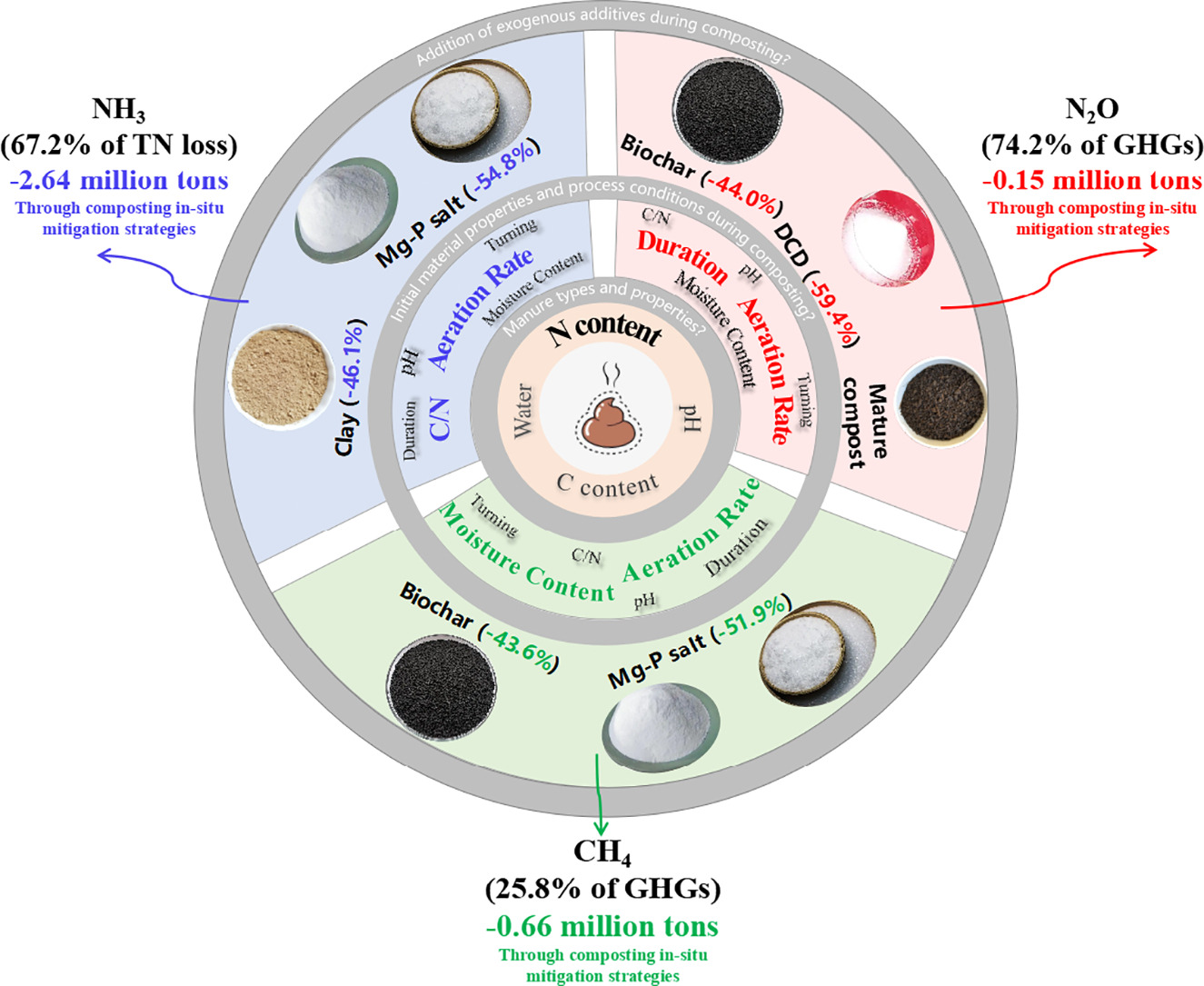August 10, 2023 | Science of The Total Environment
Researchers from China Agricultural University have delved into a critical aspect of farming and environmental conservation: composting manure from livestock. Here's what they found:
Manure composting isn't just about managing waste; it also plays a significant role in combating climate change. To better understand this process, the researchers conducted a comprehensive analysis, looking at data from 87 published studies in 11 different countries, totaling 371 observations.
Here are some key takeaways:
- Nitrogen Matters: The nitrogen content in animal feces has a big impact on the release of greenhouse gases (GHGs) and nutrient losses during composting. When nitrogen levels are high, there's an increase in emissions of ammonia (NH3), carbon dioxide (CO2), and methane (CH4).
- Composting Methods: The way we compost matters too. Windrow pile composting, especially when compared to trough composting, is more environmentally friendly, leading to lower GHG emissions and nutrient losses.
- Control Factors: Factors like the carbon-to-nitrogen (C/N) ratio, aeration rate, and pH value influence NH3 emissions. Adjusting these factors can reduce NH3 emissions significantly. Lowering moisture levels and increasing the frequency of turning the compost can also help reduce CH4 emissions.
- Enhancing Mitigation: Adding substances like biochar or superphosphate to the compost can be beneficial. Biochar is excellent at reducing N2O and CH4 emissions, while superphosphate is effective in reducing NH3 emissions when added in the right proportion.
- Chemical Additives: Dicyandiamide stands out as a chemical additive that can substantially reduce N2O emissions during composting.
- Microbial Agents: Using certain types of microbial agents during composting can help decrease NH3-N emissions, and mature compost itself can also help reduce N2O-N emissions.
Overall, the research underscores the importance of responsible manure management to combat climate change. By optimizing composting techniques and using the right additives, we can significantly reduce greenhouse gas emissions from this essential agricultural process and contribute to a more sustainable future.
Read more: A global meta-analysis of greenhouse gas emissions and carbon and nitrogen losses during livestock manure composting: Influencing factors and mitigation strategies
Graphical abstract






